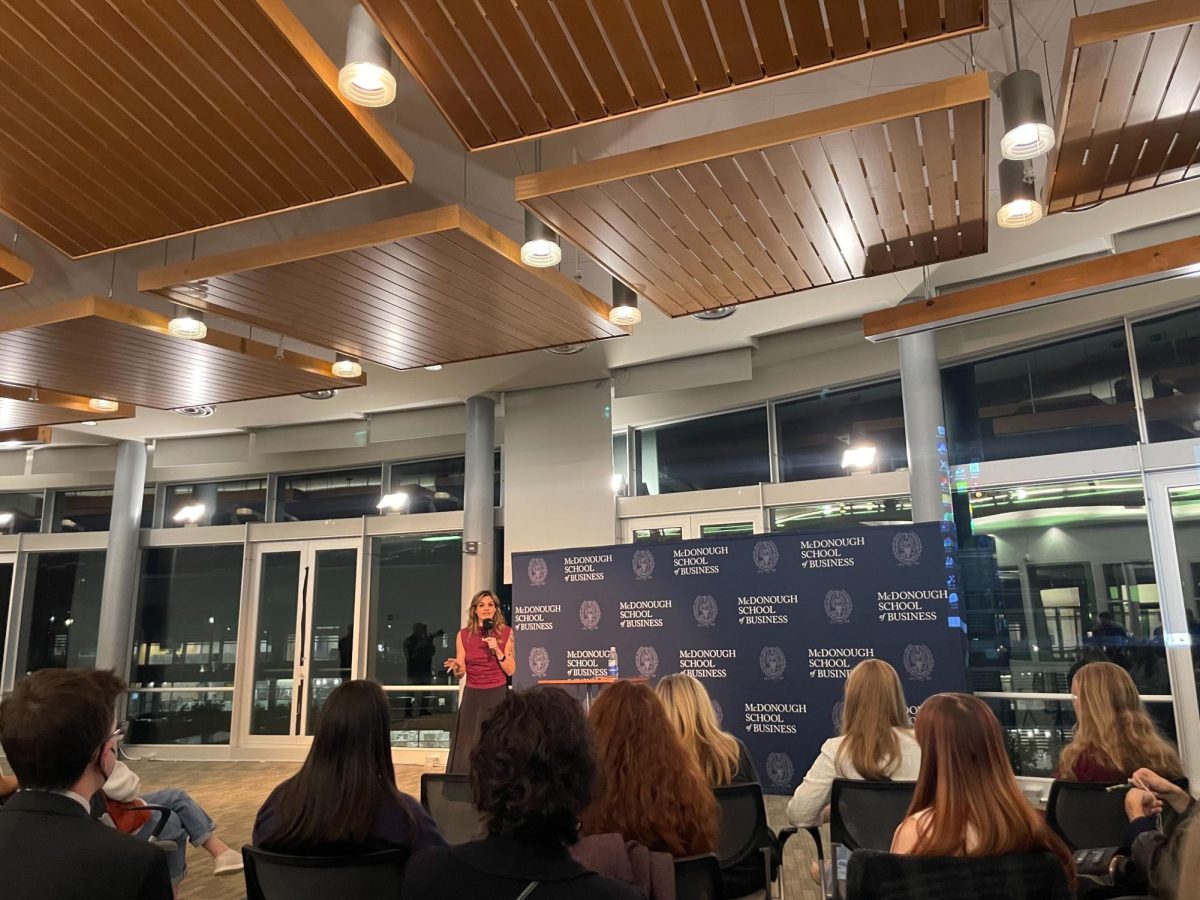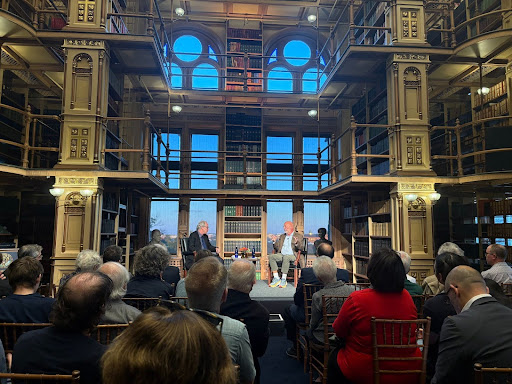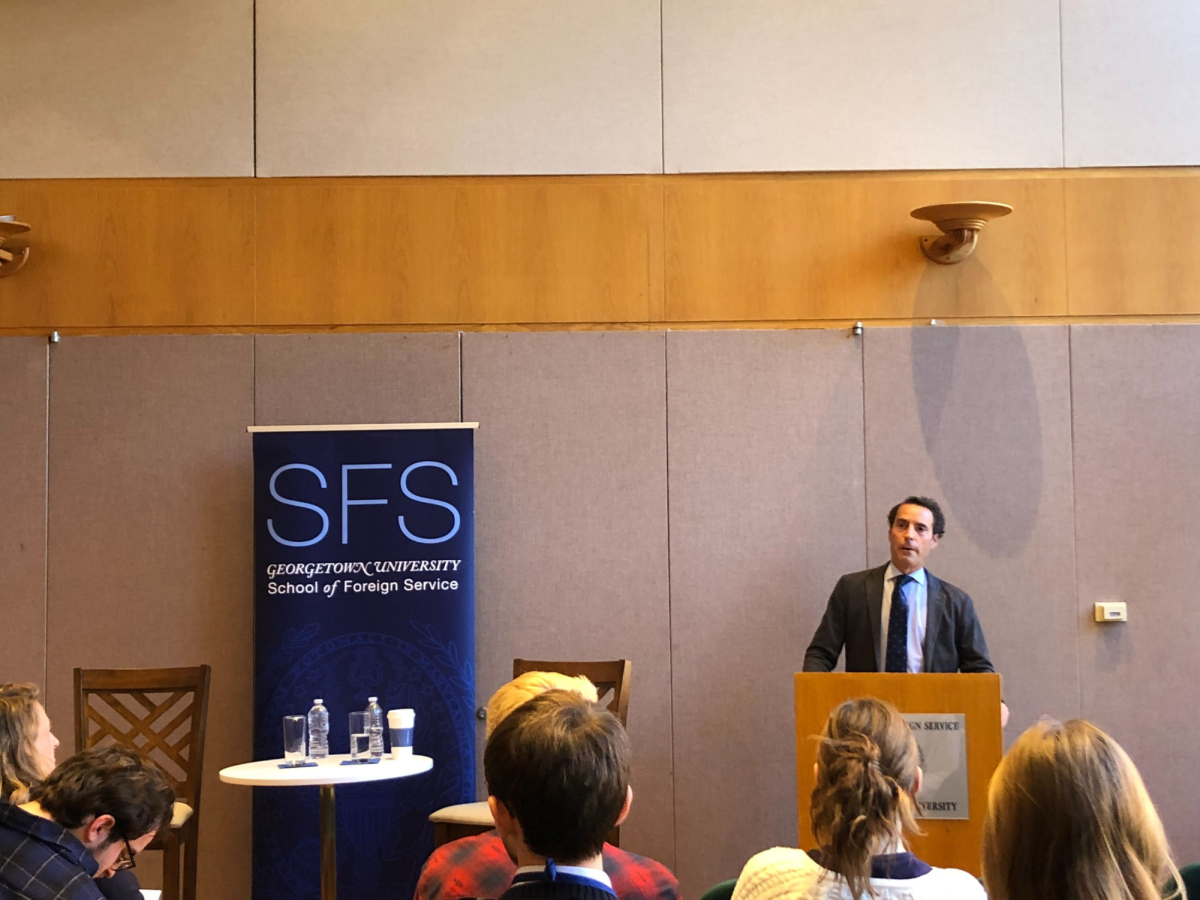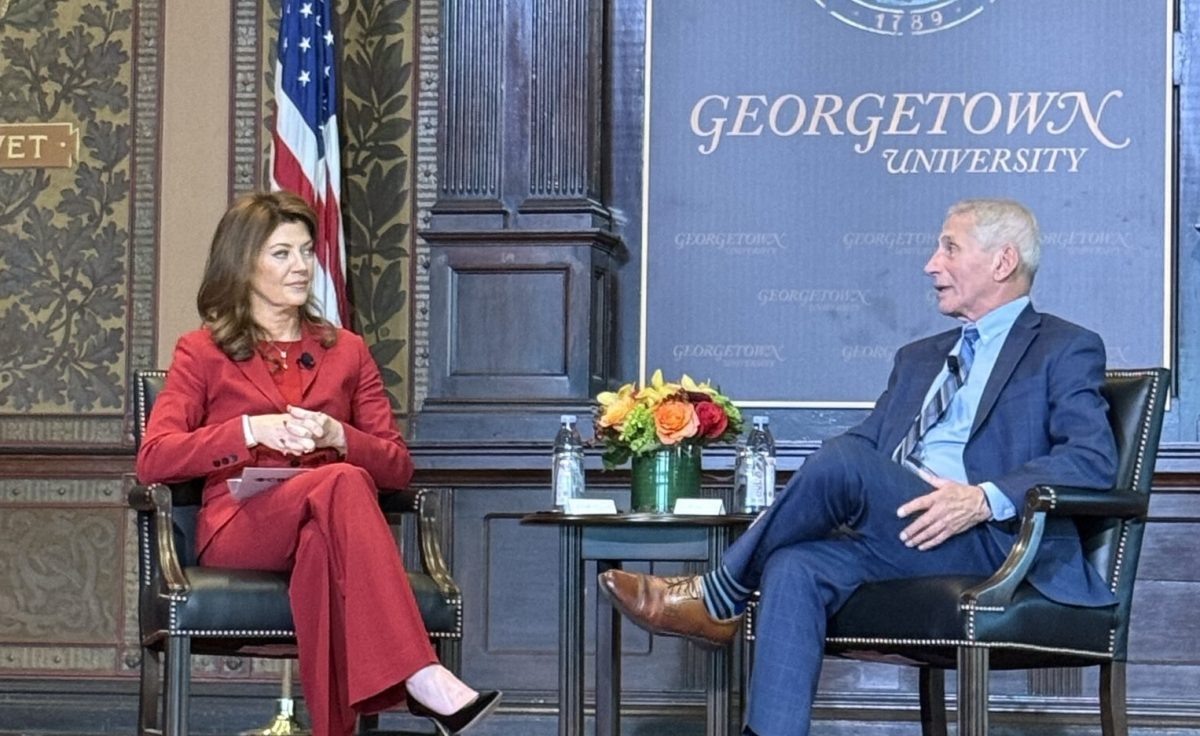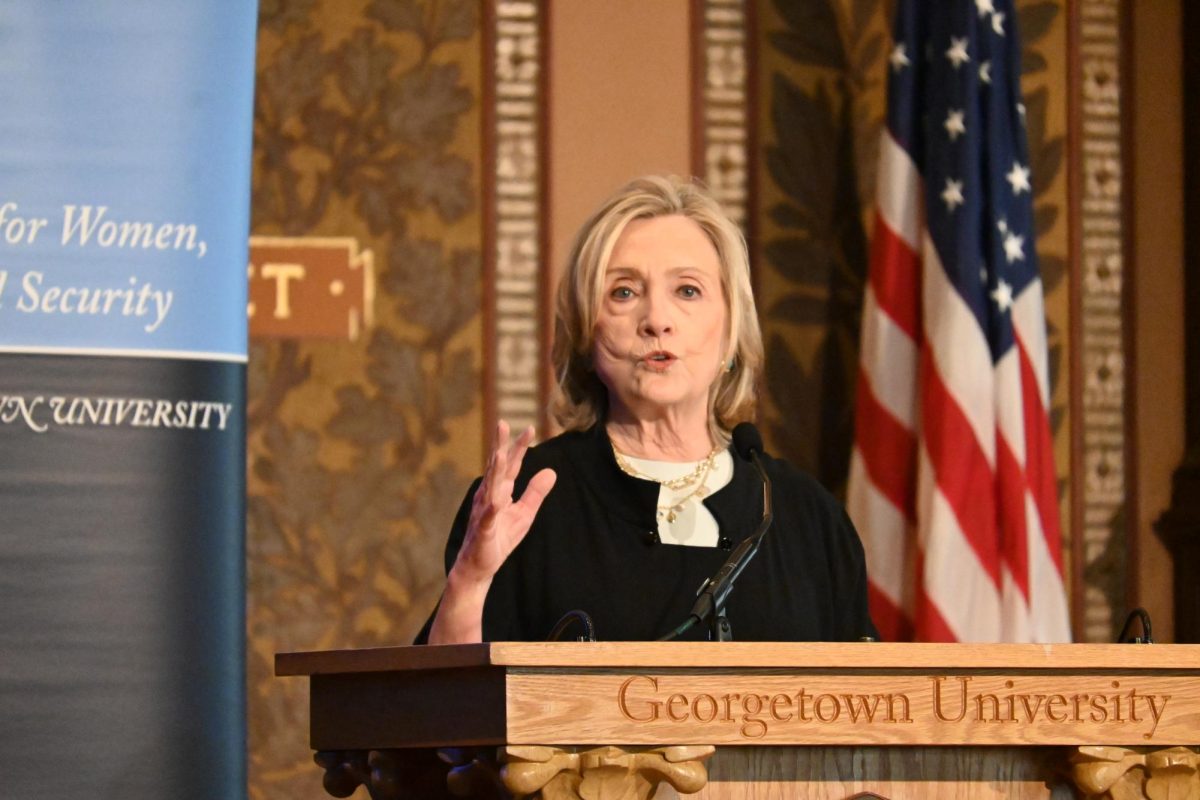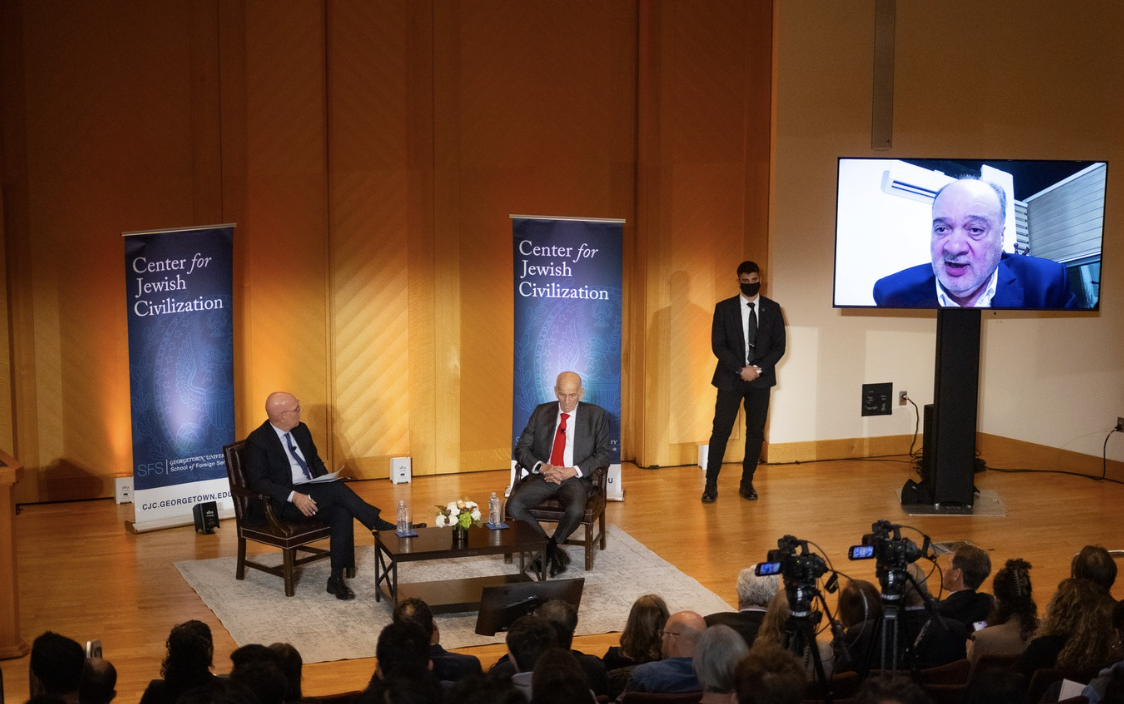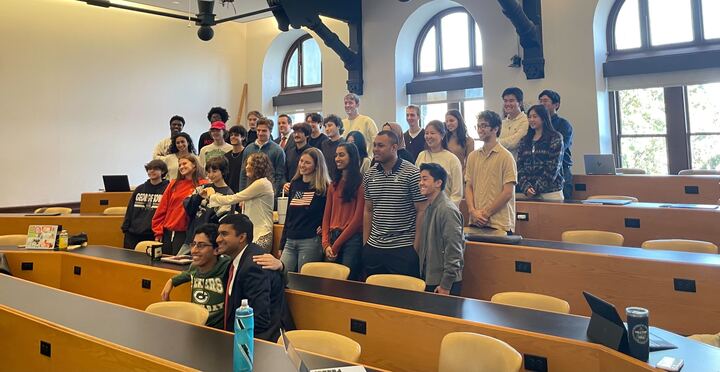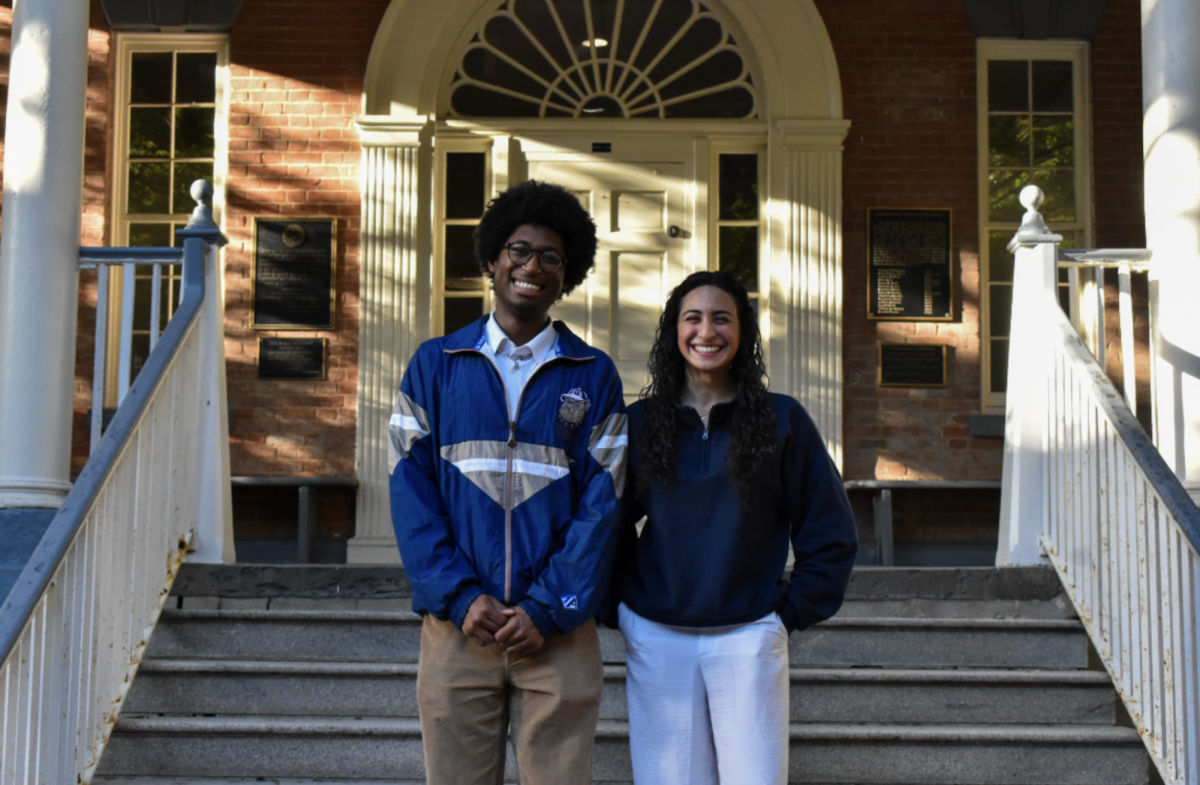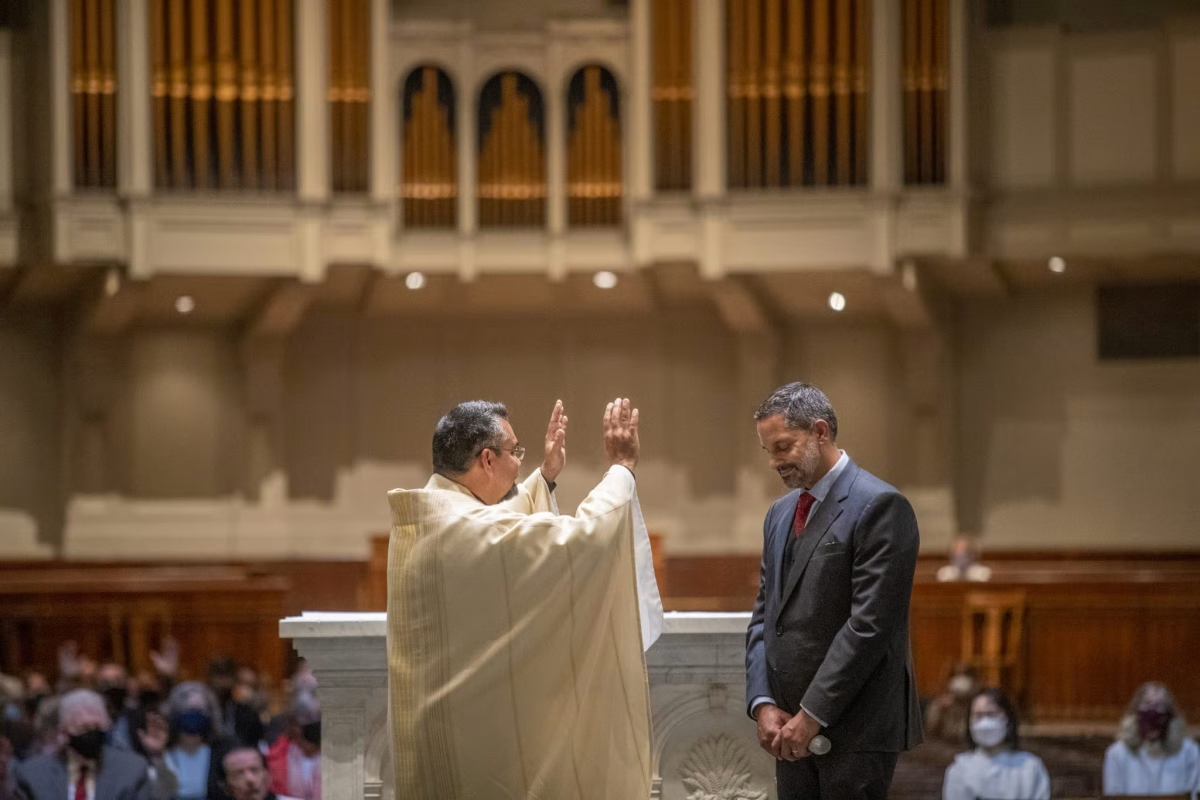Sen. Thom Tillis (R-N.C.), who is stepping down at his term’s end next year, defended his stances against President Donald Trump and called for increased bipartisanship during a Georgetown University Institute of Politics and Public Service (GU Politics) event Oct. 7.
Tillis, who has held his seat for two terms, announced his retirement earlier this year after a series of attacks from Trump over his bipartisan voting record and recent splits with the Republican Party over the nomination of Ed Martin as U.S. attorney for the District of Columbia and support for same-sex marriage. At the event, moderated by GU Politics Executive Director Mo Elleithee (SFS ’94), Tillis stood firmly for his controversial moderate beliefs and called for politicians to be bipartisan amid increasing political polarization.
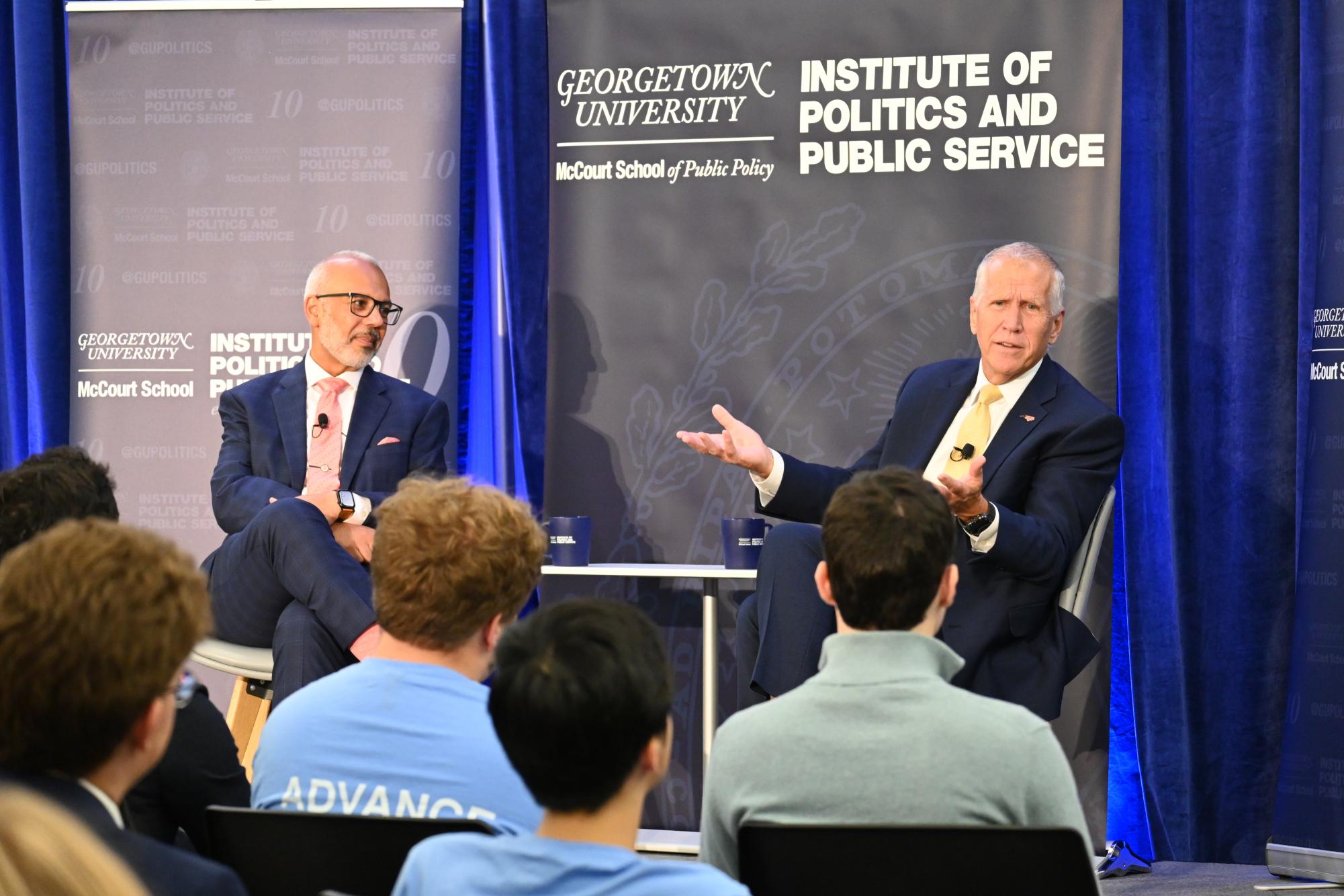
Tillis said he encourages leaders to speak their minds and refrain from falling into the expectations of a certain party, noting when he was censured by the Republican Party of North Carolina in 2023 for violating their platform.
“What we need from our leaders is to be who you are, not who your party wants you to be,” Tillis said at the event. “That’s why I got in trouble with my base from time to time. It’s why I have a statewide censure against me for taking the policy that I did — and I stand by all that.”
Throughout his two terms in the Senate, Tillis was known for championing bipartisan legislation, supporting conservative justices through the Senate Judiciary Committee and criticizing the attempted insurrection at the U.S. Capitol on Jan. 6, 2021. He serves on a number of committees, including Judiciary, Finance and Veterans’ Affairs.
Tillis said he chose to announce his decision to retire after voting against Trump’s signature spending bill, the One Big Beautiful Bill Act, because he disagreed with the bill’s opposition to a Medicaid expansion policy.
“I had decided not to run for reelection after my first term, and had it not been for a discussion with really one or two people, I wouldn’t have run the second time,” Tillis said. “I’m just not wired to do this sort of job; it’s not who I am. I had the disagreement on the so-called Big Beautiful Bill with the President, and it just seemed like the right time to let him know that I don’t change my vote, and it was time to find a replacement.”
Tillis said he expects Democrats to act to end the ongoing government shutdown only after the No Kings protests scheduled for Oct. 18.
“I think it will last at least past next Saturday, because they’ve got a No Kings parade,” Tillis said. “I mean, it’d really rain on their parade if we actually came out of a shutdown before then. I really do want to come out of the shutdown, but I’d say the chances are pretty low that we will come out of it before the parade.”
Tillis said he frowned upon his Senate colleagues who refused to take political stances out of fear for future re-election bid consequences.
“It’s amazing to me that people I talk to every day, and they’re not up until 2030, are worried about a campaign threat,” Tillis said. “There’s a reason why we have six-year terms, and a part of that is to be able to exercise our oversight role, to be in a position to do that even when your party is in power, and to have two-thirds of the body at any one time pretty much free of the immediacy of political consequences for your decision.”
Avery Hughes-Davis (CAS ’29), who attended the event, said he values bipartisanship from elected officials like Tillis.
“I think it means more trust,” Hughes-Davis told The Hoya. “I’m not from his state but I would hope that a lot of my leaders in Washington state would embody those same characteristics because that would make me feel like I was being represented in government by someone who actually was trying to make our country successful.”
Tillis said he hopes to see congressional Democrats compromise with the Trump administration, as he did under the Biden administration alongside fellow North Carolina Senator Richard Burr (R-N.C.).
“Every time we would finish a vote, the Democrats would come up and high-five me and say ‘Thank you for being bipartisan,’” Tillis said. “The only question is, ‘Are you really capable of being bipartisan?’ I hope in my remaining 453 days in the U.S. Senate that I can find at least one example of where they’ve done what 12 to 15 Republicans did in the Biden administration,” Tillis said.
Tillis reached across the aisle many times during former President Joe Biden’s tenure, including supporting Biden’s infrastructure package, working with a bipartisan group to reform gun laws and voting to pass the Respect for Marriage Act, which codified protections for same-sex and interracial marriages.
Tillis said policy discussions have devolved into partisan debates despite much of the United States favoring moderation.
“We’ve gotten less focused on an intelligent discussion about policy differences and more about fundamentally how can you be Republican or how can you be Democrat,” Tillis said. “We need more of these so-called ‘bipartisan sellouts,’ because I really know in my heart that’s where 60 to 70% of America is.”
Emma García Gupton (SFS ’28), who attended the event, said she appreciated Tillis’ bipartisan spirit.
“It’s important to represent politics for the sake of politics itself, not an ideological viewpoint,” García Gupton told The Hoya. “What stuck with me was really the importance of bipartisanship, particularly his examples of finding common ground and going through the policy on its merits and not who has sway in Congress.”
Elleithee said the event with Tillis was part of GU Politics’s larger efforts to examine the future of public service and commemorate the institute’s 10th anniversary.
“We’ve been living in this era of mass destruction, economic destruction, cultural destruction, social destruction, political destruction over the past decade,” Elleithee said at the event. “We thought that this entire year would be a great time to examine what the future of public service looks like 10 years from now.”
Tillis said civil servants should continue doing their jobs and refrain from politicizing their roles in serving the United States.
“It has nothing to do with getting people elected and it has everything to do with serving the American citizens,” Tillis said. “There is increasing evidence that on either side of the aisle, we’ve got large amounts of people who are politically influenced, and I think they need to just check those opinions at the door.”


